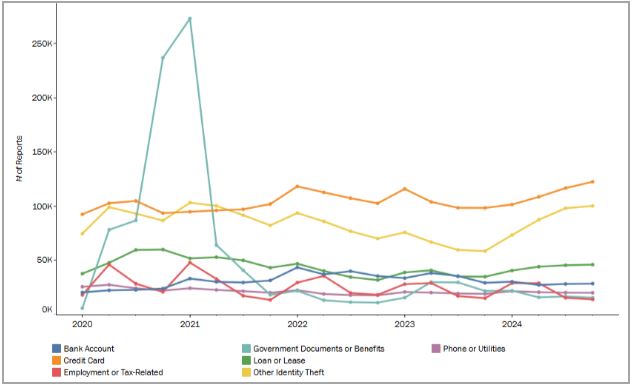How to fortify your finances with security protocols to prevent payment losses.
In an increasingly digital world, where convenience often trumps caution, the financial landscape has transformed dramatically. Consumers and businesses alike rely on electronic payments for transactions, making it essential to prioritize security measures. The rise of online shopping, banking, and digital wallets has brought unparalleled benefits, allowing for seamless transactions and access to funds at a moment’s notice. However, this convenience also introduces a host of vulnerabilities that can lead to significant payment losses.
Data breaches, phishing scams, and payment fraud are just a few of the threats that undermine the financial security of individuals and businesses. According to recent studies, billions of dollars are lost each year due to payment fraud, making it crucial for everyone—from e-commerce businesses to everyday consumers—to implement robust security protocols.
This alarming statistic highlights the urgent need for effective measures to combat financial fraud in our increasingly digital economy. As the prevalence of online transactions continues to rise, so does the sophistication of cybercriminals who exploit vulnerabilities in payment systems. Payment fraud can take many forms, including credit card fraud, account takeovers, and friendly fraud, each posing unique challenges for both businesses and consumers.
The financial implications of such fraud are staggering. For businesses, the consequences can range from direct financial losses to reputational damage, resulting in lost customers and diminished trust. For consumers, the risk extends beyond monetary loss; identity theft can lead to long-term financial repercussions and emotional distress.
Considering these factors, it becomes essential for all stakeholders in the payment ecosystem to prioritize security. Implementing robust security protocols is not merely a defensive stance; it can serve as a competitive advantage, providing consumers with peace of mind while boosting business credibility.
As we delve into this blog post, we will explore specific strategies to fortify your finances against payment fraud, ensuring a secure environment for all transactions. By taking proactive steps now, we can collectively reduce the risk of payment losses and safeguard your financial assets while enjoying the convenience of modern payment platforms while fostering a safer digital marketplace for everyone.
Understanding the Risks
Before diving into the solutions, it is important to grasp the multiple facets of payment losses.
- Cyber Fraud
Cybercriminals engage in various forms of fraud including hacking into databases, skimming credit card information, and impersonating legitimate businesses to trick consumers.
- Data Breaches
Companies that handle sensitive financial data are prime targets for attacks. When organizations fail to secure their data, they risk exposing both their own financial information and that of their customers.
- Phishing Scams
These scams involve fraudulent communications, typically through email or text, designed to trick individuals into providing sensitive information like passwords or credit card numbers.
- Payment Processing Failures
Technical issues during transactions can not only lead to payment losses but also erode customer trust in your business.
- Insider Threats
Employees, either intentionally or unintentionally, can pose risks by leaking sensitive information or falling victim to scams.
Now that we understand the risks, let’s explore how to bolster your financial security.
Effective Strategies for Enhancing Security Protocols
- Implement Multi-Factor Authentication (MFA): Given the proliferation of passwords, relying on one authentication method leaves you vulnerable. MFA requires users to provide two or more verification methods, significantly reducing the likelihood of unauthorized access.
- Use Encryption: Data encryption is essential. It encodes information, making it unreadable to unauthorized users. Ensure that sensitive transaction data is encrypted both during transmission and while stored.
- Regularly Update Software and Systems: Outdated software can be a goldmine for hackers. Regularly update your operating systems, applications, and security software to protect against vulnerabilities.
- Conduct Security Audits: Regular audits offer insights into potential weaknesses in your financial systems. They can help identify obsolete systems, unprotected data, and compliance gaps.
- Customer Education: Involve your customers in your security strategy. Educate them about common phishing tactics, the importance of strong passwords, and other security measures. A well-informed customer is less likely to fall victim to scams.
- Secure Payment Gateways: Ensure that your online payment gateway complies with the Payment Card Industry Data Security Standard (PCI DSS). This standard is designed to ensure that all companies that accept, process, store, or transmit credit card information maintain a secure environment.
- Monitor Transactions: Active monitoring of all transactions can help you quickly detect suspicious activity. Set up alerts for unusual transactions and review all statements regularly.
- Establish a Response Plan for Breaches: No system is completely foolproof. Developing a comprehensive incident response plan can help mitigate damage if a security breach occurs. This plan should include communication strategies, investigation protocols, and customer notification processes.
In the face of evolving threats, enhancing security protocols to prevent payment losses is not just a good practice; it’s a necessity. As consumers and businesses alike embrace the digital transactions that make life easier, the onus falls on them to navigate this landscape with vigilance.
The consequences of inadequate security can be catastrophic—not only financially but also in terms of reputation and trust. When it comes to finance, the implications of inadequate security extend far beyond immediate monetary losses. The financial repercussions can be severe, resulting in significant charges, lost revenue, and even costly legal battles. However, the impact on reputation and trust can often be even more damaging, lasting well beyond the initial incident and affecting the very foundation of a business's existence.
Financial Consequences
- Direct Losses
One of the most immediate impacts of payment fraud is the financial hit organizations take when their systems are compromised. Companies may face enormous financial losses from fraudulent transactions, chargebacks, and refunds. Even a single data breach can cost millions in stolen funds and recovery efforts.
- Legal Implications
Companies failing to secure sensitive data may face legal action from affected customers, leading to hefty fines, settlements, and ongoing litigation costs. Regulatory bodies may impose penalties if businesses are found to be non-compliant with industry standards, such as PCI DSS (Payment Card Industry Data Security Standard).
- Increased Insurance Premiums
After a cyber incident, businesses may see a spike in cybersecurity insurance premiums. Insurers assess risk based on previous claims, and a history of poor security can lead to increased costs for future coverage.
Reputational Damage
- Loss of Consumer Trust
Consumers expect businesses to protect their information and transactions. A significant security breach can erode trust, driving customers away and leading to a long-term decline in customer loyalty. Trust is hard-won and easily lost; once a company has been marked as susceptible to fraud, regaining that trust can be an uphill battle.
- Negative Publicity
In today’s hyper-connected world, negative news travels fast. A data breach or fraud incident can make headlines, tarnishing a company’s reputation almost instantly. The fallout can result in a perception of negligence or incompetence, further alienating current and potential customers.
- Competitive Disadvantage
Companies that fail to prioritize security may find themselves at a competitive disadvantage. Consumers often opt for businesses they perceive to be safe and reliable. If a company has a history of breaches, customers may be swayed to choose competitors with stronger security protocols in place.
- Impact on Partnerships
Business relationships can also suffer as partners may begin to question your ability to safeguard sensitive transactional data. This has broader implications, potentially limiting future collaborations and ventures.
Rebuilding Trust and Security
In the aftermath of a security failure, businesses must focus on rebuilding trust while implementing more stringent security measures. This process can include:
- Transparent Communication
Be upfront with customers about the breach. Inform them of the steps being taken to address the issue and safeguard their data moving forward.
- Investing in Security
Demonstrate a commitment to better security protocols. This could involve investing in state-of-the-art technology, hiring security experts, and undergoing regular audits to identify vulnerabilities.
- Customer Support
Provide resources and assistance to affected customers. Offering identity theft protection services and dedicated support can help reassure customers that you are taking their safety seriously.
- Continuous Education
Regularly educate your team and customers on security best practices. Empowering them with knowledge can create a more vigilant environment against fraud.
Inadequate security can create a perfect storm of financial and reputational turmoil. Businesses must now recognize that robust security protocols are not merely an operational requirement but foundational to sustainable success. As the digital payment landscape continues to evolve, the potential for fraud will only grow. Companies can't afford to be reactive; they must be proactive to protect their assets and maintain consumer trust.
In essence, prioritizing security is a commitment to integrity and quality in service delivery. It reassures customers that their financial data is safe. By understanding the full impact of payment fraud—from financial losses to reputational damage—organizations can take decisive actions to fortify their defenses. Ultimately, cultivating a culture of security awareness and diligence will pay dividends, ensuring that businesses not only survive but thrive in a digitally driven marketplace. Embracing advanced security measures is, therefore, not just an option; it is indispensable for anyone looking to protect their financial well-being and sustain customer trust in their brand.
By implementing the strategies outlined above, you can fortify your finances and reduce the risk of payment losses. From multi-factor authentication and encryption to customer education and regular audits, a multi-layered approach is key to safeguarding your assets.
The growing complexity of cyber threats is a reality we can no longer ignore. Embracing robust security measures is like investing in armor; it might take an upfront commitment of time and resources, but the returns in peace of mind and financial protection are immeasurable. By prioritizing security today, you are ensuring a safer financial tomorrow. Remember, in a digital world fraught with danger, staying proactive is your best defense against unexpected losses. Let's embrace security as a fundamental aspect of our financial strategies, enabling us to enjoy the benefits of digital transactions with confidence.






